Exploring Computer Science Through AI Tools: A Fun and Interactive Way for Kids to Learn
Exploring Computer Science Through AI Tools: A Fun and Interactive Way for Kids to Learn
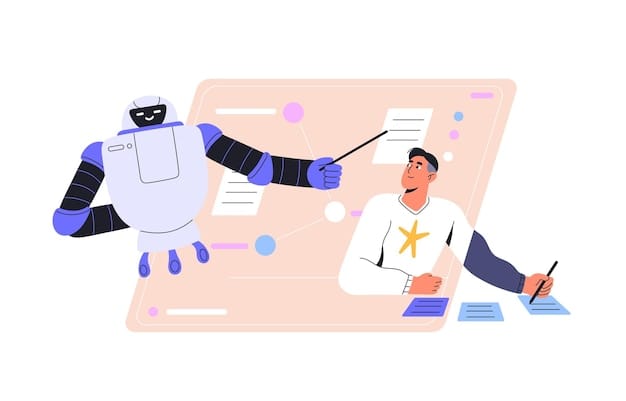
Learning Computer science now extends beyond programming since its focus shifted toward analyzing how technology influences global systems. Industrial changes powered by computer science and artificial intelligence (AI) now promote significant advancements in how children study computer science online and learn from technology and interact with it. The combination of artificial intelligence tools allows children to discover coding concepts along with problem-solving and creativity through entertaining interactive interfaces. With AI as the backbone artificial intelligence has developed intelligent tutors offering customized education and game-based programming tools which provide easy access to learning computer science.
This Blog investigates the ways AI educational tools support young students to learn computational thinking abilities and foster creativity together with technology. Students can enter computer science through AI-powered games as well as visual coding platforms and chatbots which provide an exciting pathway to learn computer science online. This blog reveals the transformative impact of AI on learning methods for the upcoming years.
Why Learning Computer Science Matters for Kids
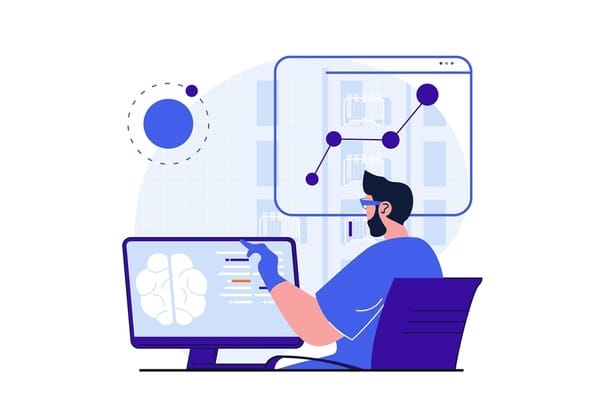
The fast progression of technology receives its defining impact from computer science and AI as it shapes educational institutions toward their future state. The educational methods used for study computer science teaching normally include static educational content and predefined curriculum standards yet AI-powered tools are revolutionizing these approaches, making learning computer science more dynamic. Students benefit from immediate feedback functions and personalized learning progression between educational tools which unite them with practical applications for better results.
The AI-based coding assistants provide immediate assistance which enables students to deal with mistakes while developing their program logic throughout the coding process. Learning platforms adjust learning speed to individual students so each one can proceed through lessons at their own personal rate. Young learners can explore coding applications through AI-generated projects which simultaneously encourages innovative thinking in their learning process.
Introducing artificial intelligence into computer science education delivers coding education along with priceless computational thinking and problem-solving competencies that students need for the future. The ongoing evolution of AI systems will create new prospects that let young people learn computer science online and develop innovative solutions through creation.
Study Computer Science Online - Fun, Flexible, and Effective
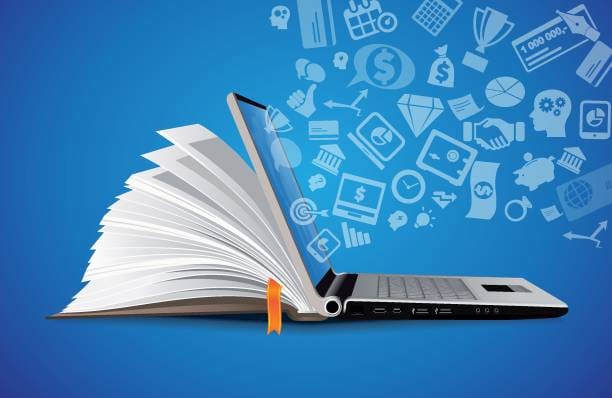
AI tools have changed the teaching methods for computer science by creating an interactive learning environment that enhances engagement while becoming more accessible for students. The platforms employ artificial intelligence to deliver simultaneous feedback during learning and to create flexible programs and practical STEM tasks for teaching essential problem-solving competencies along with computational reasoning abilities. The following list shows top AI-powered educational tools that guide young students into coding and programming through interactive and understandable experiences. These tools support computer science for beginners, making it easier to grasp foundational concepts while fostering innovation.
Scratch with AI-Powered Features
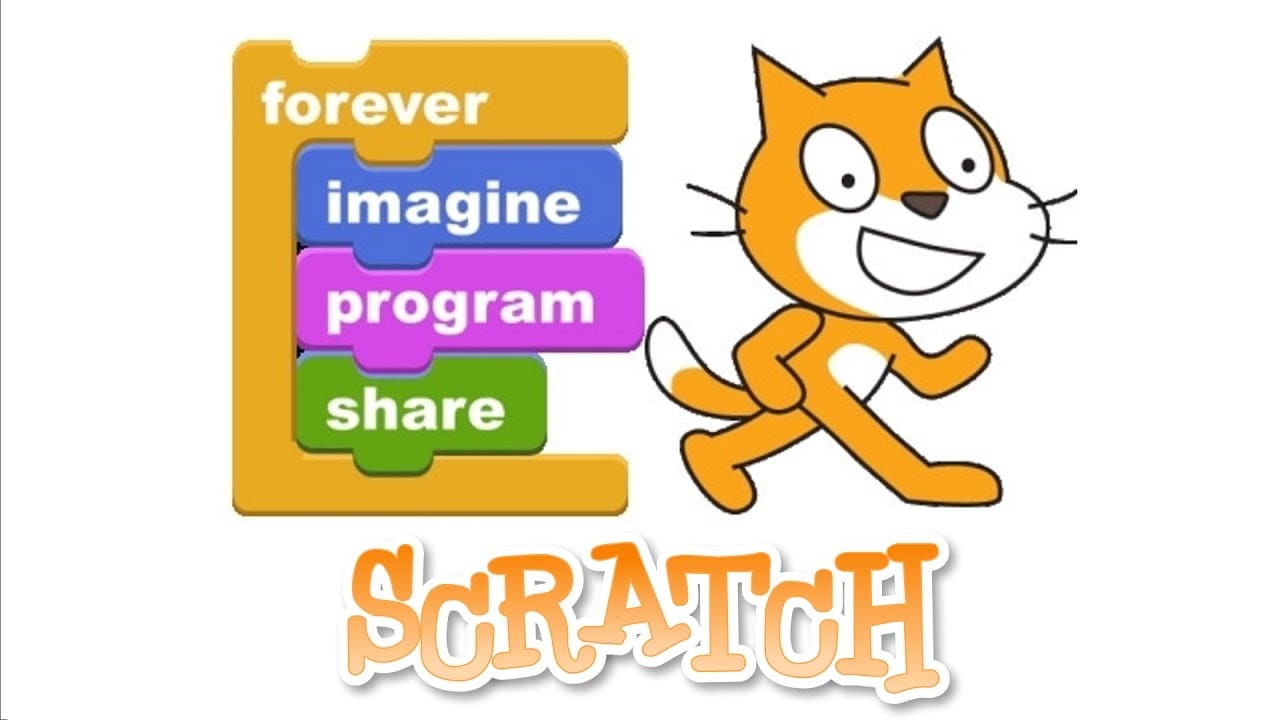
Among the most widely used graphical programming systems for children stands Scratch which emerged from MIT labs. This platform enables students to learn computer science online by creating interactive stories as well as animations and simple games using blocks that function similarly to coding commands. AI-powered features have recently been applied to Scratch which improves its functionality for newbie programmers.
The AI suggestion system manages to provide immediate hints during coding so kids learn logic more effectively and encounter less frustration during their programming process. Students can freely explore while their learning progresses through these features which help them make mistakes in order to develop self-assurance about coding abilities. The AI-powered extensions let Scratch projects understand real-time user inputs including voice detection and motion tracking technology which generates interesting educational experiences in learning computer science with AI.
Code.org and AI-Based Challenges
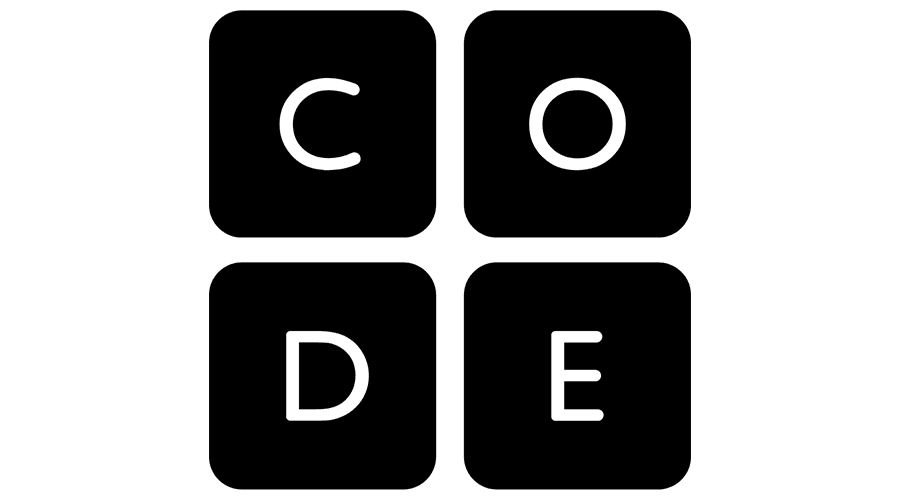
The recognized platform Code.org offers computer science for beginners through structured coding lessons designed for children of all ages.Code.org enhances its educational offering by combining AI-powered learning paths to generate customized challenges that restructure based on students' achievements and development.
Step-by-step tasks let children learn key programming principles including loops as well as conditionals and functions. AI testing systems evaluate student learning speeds to provide individualized practice tasks that help students build their comprehension. Through its AI training, Code.org enables students to study computer science online while understanding to discover responsible AI practices while building their ability to evaluate how technology influences social frameworks.
Machine Learning for Kids
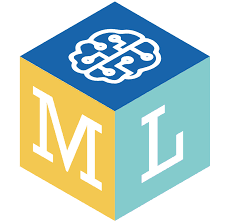
The interactive platform Machine Learning for Kids uses a hands-on learning method to teach artificial intelligence principles to children. Traditional coding tools do not offer such a training opportunity because this tool enables children to observe their AI system learning as they input data for model development.
Through the platform, kids can establish models that detect objects and classify emotional content within written text or develop AI-powered chatbots. The hands-on activities reveal AI system operations to children while developing their expertise in the upcoming age of machine learning technology. The platform has clear user interfaces to make AI research accessible for inexperienced children who wish to use it.
Google’s Teachable Machine
Children can easily experiment with AI through Google's Teachable Machine because it operates as a no-code AI tool. Young learners access this platform which enables them to develop AI models through images sounds and pose data without coding requirements, making it ideal for computer science for beginners.
Kids can create projects like:
The AI model receives training through the identification of different hand movements.
Sound identification establishes a system for identifying different music categories.
The training of models that recognize visual items like objects and animals in digital images.
Teachable Machine provides students with a great initial AI learning experience through its visual presentation of machine learning models that recognize patterns to generate predictions. Children can use the simple interface to explore AI fundamentals because it engages them to learn about machine data-processing techniques.
AI-Powered Chatbots for Learning to Code
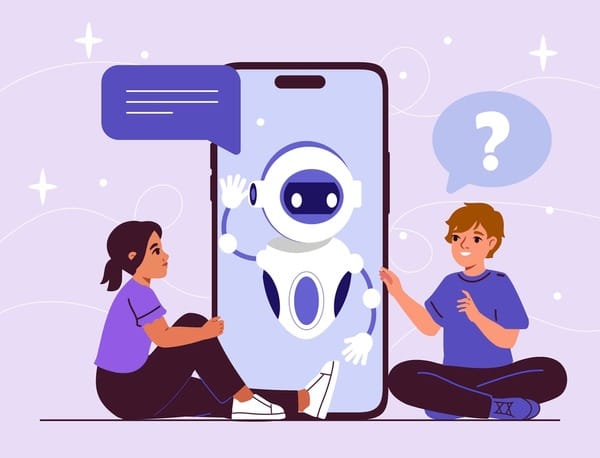
The AI-powered ChatGPT platform serves as a promising educational partner for children who are studying computer science. AI-driven assistants help young coders through their development by offering three main capabilities:
Answering programming-related questions.
The combination of code debugging with effective explanations regarding errors.
The system recommends both entertaining and innovative programs for coding.
The feedback and individual help that chatbots provide help computer science for beginners approach coding in a more interactive manner while feeling less discouraged. AI-powered chatbots support kids in practicing programming knowledge while offering custom advice that helps students develop their problem-solving abilities and self-learning competence.
The Future of AI in Computer Science Education
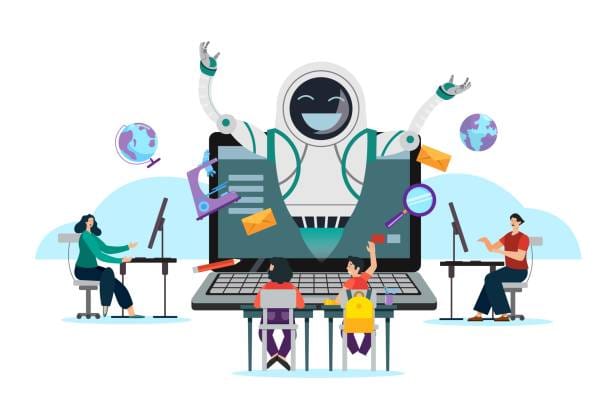
Artificial intelligence platforms bring major advancements in computer science education for children through simple entry points alongside adaptable lessons and entertaining educational tools. Through educational programming tools including Scratch, Code.org, Machine Learning for Kids, Google’s Teachable Machine, and AI-powered chatbots children gain access to a stimulating learning environment about computer scienceonline.
Through AI-led educational tools, parents should introduce their children to developing tomorrow's technology capabilities which will lead to success in the upcoming technology-driven world. Embracing AI in education serves to create interactive coding instruction while developing future problem-solving innovators among digital creators. 🚀
Features to Look for in Online Computer Science Courses for Kids
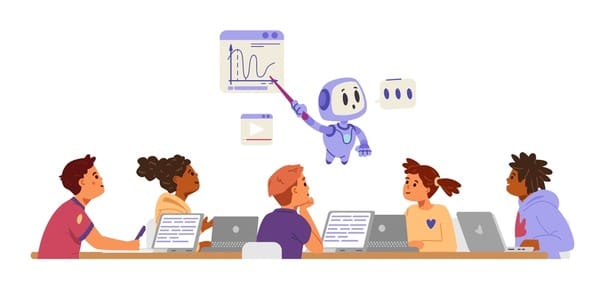
AI-driven platforms within digital learning settings offer enhanced computer science for beginners that provides personalized benefits and interactive advantages. Children learn advanced programming ideas through adaptive tools that offer interactive training components and provide real-time feedback and tailored educational techniques. The implementation of Artificial Intelligence modifies educational experiences for young programmers who participate in online courses.
Personalized Learning Paths: Children learn differently from each other but AI-enabled platforms adjust lesson difficulty levels according to individual student progress. AI technology evaluates student abilities and learning challenges to redefine lesson complexity which maintains consistent progression.
The AI tracking features on Code.org and the Khan Academy platform assess student coding concept mastery so they can provide custom exercises. AI systems offer complementary tutorials with examples to students who face difficulties with loops or conditionals. Schools using personalized educational methods help students learn complex subjects through simpler programs that prevent mental overload during study.
Interactive Simulations: Real-world programming experiences come to life through interactive simulations which AI technology enables students to interact with through genuine examples. Children gain better learning experiences by working directly with their classes because interactive projects teach them how to make games and animations and develop AI models.
The interactive simulations help children understand the practical consequences of programming and AI by providing real-time demonstrations.
Instant Feedback: The fundamental obstacle when learning to code involves the challenge of receiving immediate feedback to solve errors. The combination of AI tools provides instant error detection to locate coding mistakes and it shows students precise instructions for correction. Kids who require assistance now get instantaneous explanations from these tools thus learning how to solve problems and avoid mistakes.
The programming assistants powered by AI such as ChatGPT and Microsoft’s Code Builder operate as explainers for coding errors by presenting solutions in basic terminology with written programmed code solutions. Using this functionality students develop increased self-assurance while attempting coding activities because it alerts them to errors throughout the coding process.
The Future of Learning Computer Science with AI
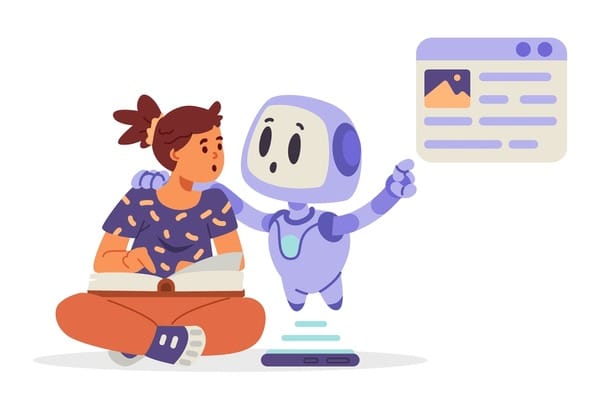
Artificial Intelligence (AI) has been fully embedded into computer science to define current techniques of technology development alongside daily usage patterns. Learning computer science today equips children with skills that will become necessary for AI-driven careers throughout their professional lives. Young students who understand machine learning principles together with neural networks and data analysis gain a comprehensive view of programming effects that go past mere program authoring.
How AI Enhances Programming:
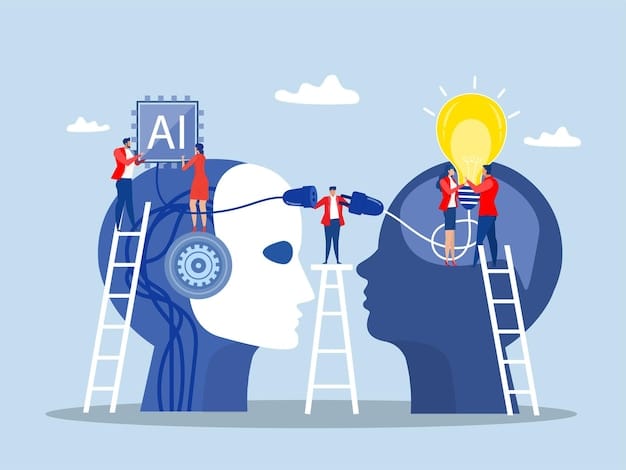
Programming benefits from AI advances which allow machines to perform automated repetition work optimize algorithm codes and help programmers with debugging tasks. Through AI-powered tools, developers can eliminate the need for manual error fixes while they can also eliminate rewriting complex programming sections.
AI has transformed programming by automating repetitive tasks, optimizing algorithm efficiency, and assisting in debugging. Learning computer science with AI helps students and professionals streamline their coding processes. AI-powered tools eliminate the need for manual error corrections while reducing the complexity of rewriting extensive programming sections.
An automated system should handle constant coding assignments to achieve time effectiveness while creating a more efficient workflow.
The implementation of optimized algorithm solutions through the program's framework leads to performance improvements and better effectiveness.
The system detects and corrects program bugs through instant code analysis which leads to minimized debugging duration.
Github Copilot combined with Replit Ghostwriter provides developers with automated code completion features that enable both novice programmers and professionals to work more efficiently and accurately. These developmental improvements make the coding process more streamlined while allowing students to concentrate on inventive as well as problem-solving capabilities instead of simple syntax.
Why Kids Should Learn AI Early:
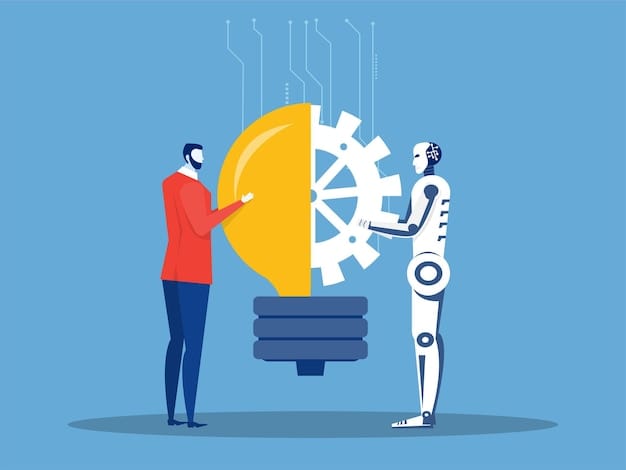
Educating children about AI concepts during their early development fosters important problem-solving abilities that should lead them toward technology-based professions in the future. The knowledge of AI systems has become similar in value to traditional coding skills since numerous upcoming careers will need professionals who understand computer science AI systems' mechanisms. Learning AI early helps kids:
Children develop their natural computational abilities and logic when they work with AI coding projects.
Teaching children to understand the ethical consequences of AI systems helps them eliminate the misuse of technology.
Real-world encounters with AI systems create curiosity enabling students to discover new ideas through genuine application.
Children who learn computer science online and explore AI principles at a young age develop familiarity with AI tools and concepts, making them potential developers of new technologies within an ever-changing digital environment.
Real-World Applications:

Multiple business fields depend on fundamental knowledge of programming because artificial intelligence and learning computer science remain essential foundations in industry operations. As computer science and AI continue to evolve, businesses rely on these technologies for efficiency and innovation. Some real-world applications include:
Robotics – The manufacturing sector along with healthcare and space exploration utilize artificial intelligence robots known as robotics.
Video Games – Technical systems that implement artificial intelligence in video games yield more intelligent non-playable characters along with adaptive game mechanics.
Automation – Through automation, AI enhances operation efficiency in sectors such as finance retail, and customer service sectors.
Digital Assistants – AI powers digital assistants through Siri, Alexa, and Google Assistant in order to process verbal commands with real-time responses.
When children understand AI relations with computer science they can better see what their programming skills produce so they become more curious about advanced coding projects.
Introduce the Concept of Computer Science for Beginners
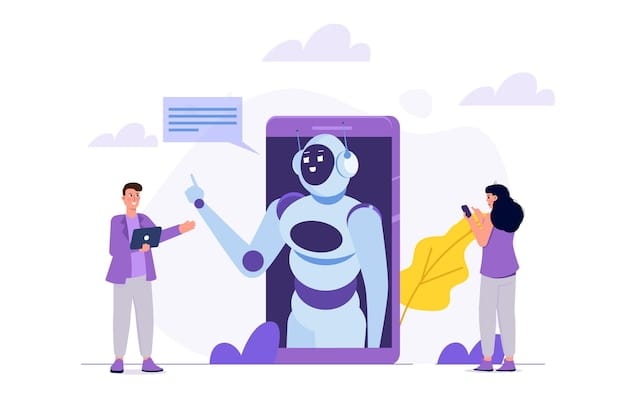
Multiple top-notch web-based courses enable parents and teachers who want to bring children into computer science by using engaging lessons that combine AI and coding practices. The courses structure lessons with interactive assignments that teach useful programming along with problem-solving abilities to students.
CodeYoung’s AI and Coding Classes:

CodeYoung provides proper frameworks for teaching artificial intelligence and coding through tailor-made instructional programs for beginner students. The computer science coursesprovide beginners with basic programming basics before teaching them how to work with AI-based projects including chatbots and machine learning models. The program provides active learning through direct classes alongside individual mentor support that serves as an excellent base for beginner students.
Scratch + AI Courses:
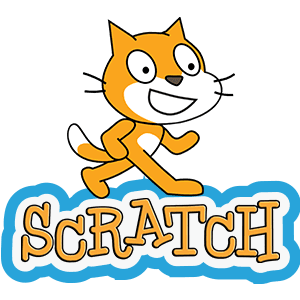
The popular visual programming tool Scratch allows children to learn through programming yet belongs with AI features integrated specifically in certain courses. Children can construct animations along with games and interactive stories by utilizing AI-enabled features that include voice recognition and motion detection through these courses. The system which uses coding blocks delivers a smooth learning experience that works well for students starting their coding journey.
MIT App Inventor with AI Features:
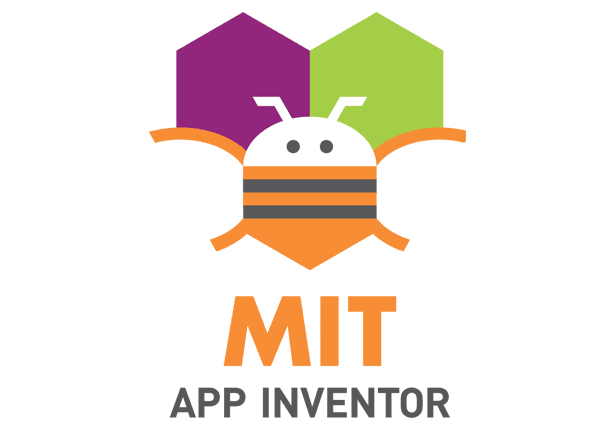
Through MIT App Inventor kids can build mobile applications by moving graphical components onto a canvas using its easy-to-use interface which includes AI development capabilities. Students can put teaching abilities into their mobile applications through AI-powered components which include machine learning models together with image recognition and natural language processing. The interactive teaching method demonstrates AI use in practical scenarios to assist students in their creative development.
AI for Kids by Coursera:

Through the Coursera platform kids can learn AI fundamentals with their beginner-level class AI for Kids which uses interesting approaches for children at this age level. The educational content includes learning about AI systems together with their practical uses and foundational principles of machine learning. The course delivers essential information about AI for children seeking knowledge about AI in modern technology.
Khan Academy’s Computer Science Basics:

Retrieved from the Khan Academy website are interactive modules about coding algorithms and problem-solving that enable children to establish computer science fundamentals. Both AI and programming basics are addressed by the platform which offers foundational programming concepts for students who want to learn AI in the future. The platform enables learners to progress independently at a pace that best suits them allowing maximum flexibility.
Choosing the Right Course
A child's course selection should match their degree of experience as well as their age together with their personal interests. Computer science for beginners find Scratch + AI Courses to be an enjoyable learning method that teaches coding through visual methods. The mobile development route leads to MIT App Inventor whereas Coursera’s AI for Kids represents the best choice for those looking for intense AI study. The use of AI-generated educational experiences in any chosen online CS courses helps prepare students for the upcoming technological landscape. 🚀
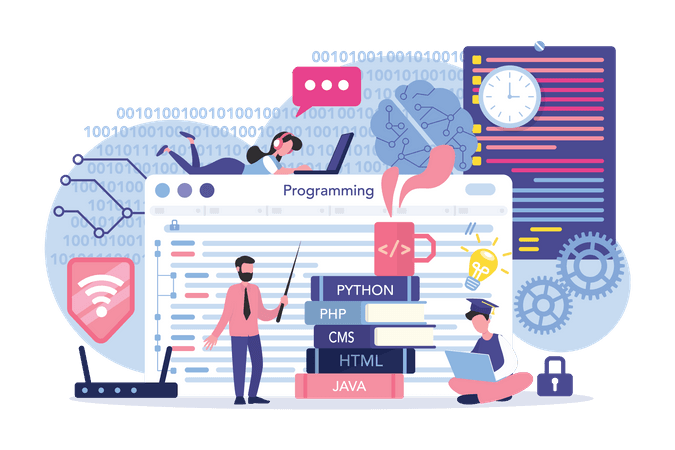
Machine-learning tools are transforming computer science for beginners education for children by converting classic coding lessons into interactive contact-focused classroom activities. The incorporation of AI-based learning systems lets children master critical computational thinking skills while learning practical real-world applications and building original projects that drive originality and invention. changes made to text
The AI coding sites Scratch and Code.org along with the Google Teachable Machine platform enable complex computer science and AI subjects to become engaging and understandable for elementary students. Through the combination of personalized learning paths with AI-based feedback and interactive simulations, the educational experience delivers unique student-paced instruction according to individual learning preferences.
Introducing AI tools for learning computer science exploration enables children to adapt to emerging technological practices of the future. The fundamental skills developed in AI-powered learning will prepare students for programming and robotics alongside AI careers in addition to future professional paths because they will learn critical thinking along with creative problem-solving abilities as well as digital world adaptation. The current moment represents an optimal opportunity for children to learn computer science online and through AI-powered educational systems so they can position themselves as future leaders of innovation. 🚀
Computer Science and AI - FAQs
What are the benefits of learning computer science and AI for kids?
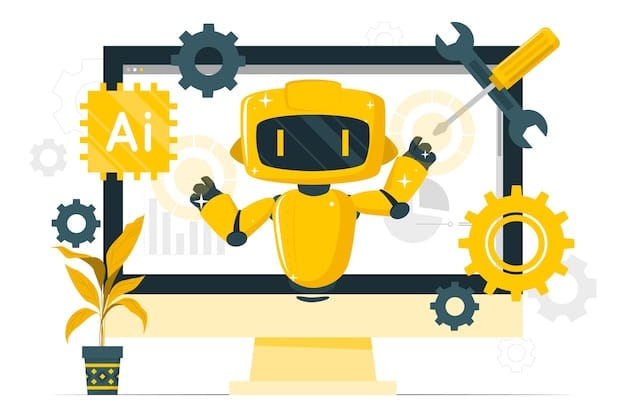
Knowledge of computer science and Artificial Intelligence enables children to develop their analysis and problem-solving skills together with creativity capabilities. The tech learning experience gives students practical teamwork skills alongside communication abilities and teaches them to become resilient while simultaneously providing knowledge about their future career possibilities. Initial access to digital capabilities helps students build several important skills which prepares them for STEM careers along with adapting efficiently to a future powered by technology.
What are the best AI-powered platforms for learning computer science online?
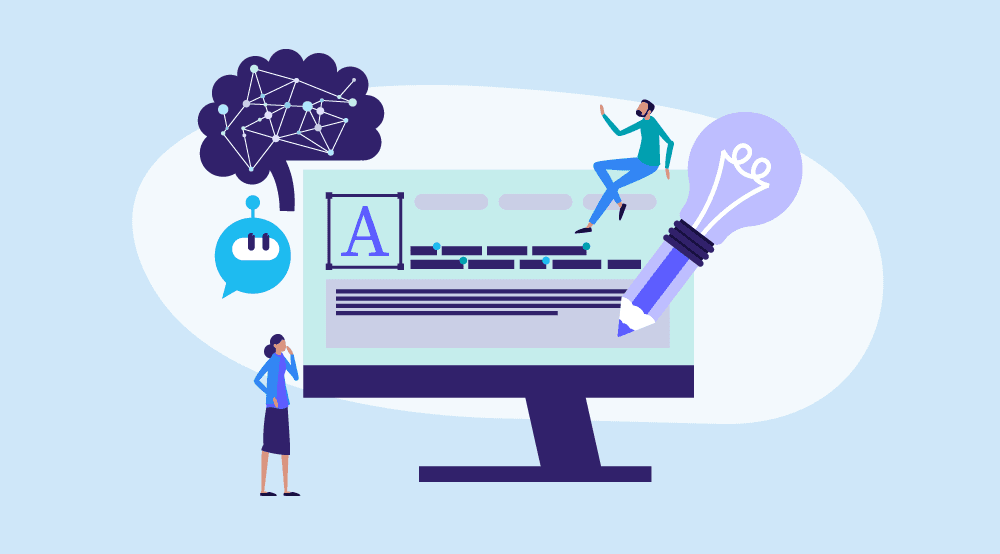
The leading AI platforms designed for children include the following options:
Scratch – Through its AI-assisted features Scratch provides children with access to the visual programming language format.
Code.org – Most children learn coding through Code.org because it provides AI-based challenges and interactive tutorial features.
Teachable Machine – The Google tool Teachable Machine enables users to understand artificial intelligence through learning its sound and image recognition features.
Machine Learning for Kids – Machine Learning for Kids provides children with entertainment-based projects to enable them to learn about training machine learning models.
Google AI Experiments – The Google AI Experiments provide children with interactive experimental projects to discover AI fundamentals through hands-on learning experiences.
Can kids study computer science online effectively?
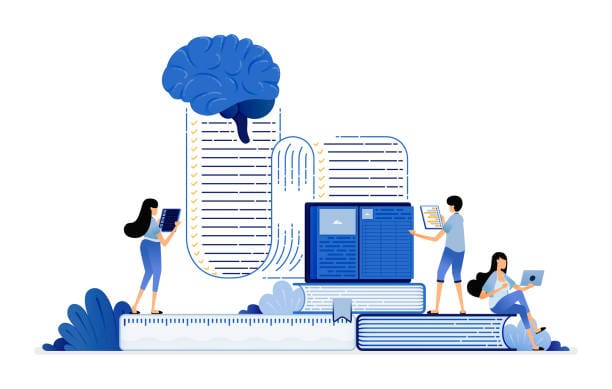
Yes! AI-powered basic computer science beginner courses consist of structured stepwise lessons and interactive programming sessions as well as coding practice exercises for entry-level learners. The educational tools present difficult concepts in basic visual activities, helping elementary students learn computer science online and grasp fundamental programming skills.
How is artificial intelligence related to computer science?
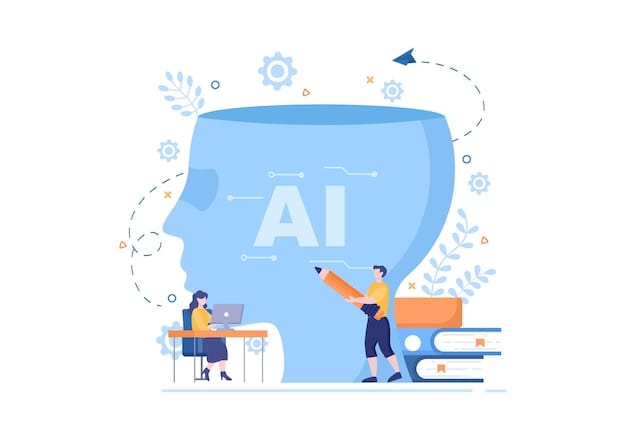
The technology that simulates human intelligence functions through computer systems and examines intellectual tasks that typically need human involvement falls under computer science and AI. Learning Artificial Intelligence first requires essential knowledge in programming together with algorithms along with data science & analytical skills.
Through the study of computer science students learn crucial problem-solving abilities and gain expertise about intelligent technology operation.
How can AI make learning computer science more fun?
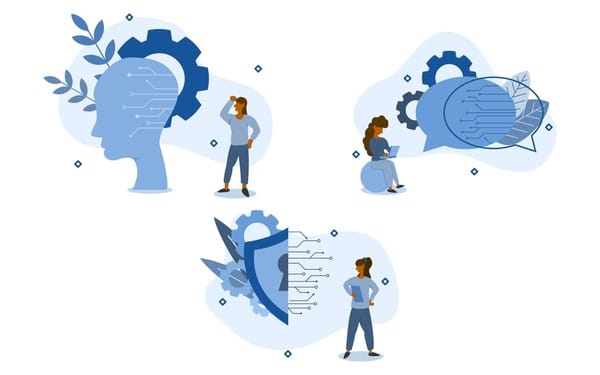
Many ways exist to deliver dynamic AI education in an interactive manner for children to learn AI concepts.
Building AI chatbots: Using educational tools the students will develop an artificial intelligence chatbot that functions as a question-answering system while simultaneously playing interactive games with users.
Creating image recognition projects: Students can create image recognition systems through the Teachable Machine provided by Google.
Developing AI-powered video games: Students should design and create AI game engines through Scratch and then transition to Unity development.
Training machine learning models: A combination of voice recognition experimentation and AI automation practice should be offered to children.
Experimenting with voice recognition and automation using AI-powered tools.
What are some of the best online schools for computer science for kids?
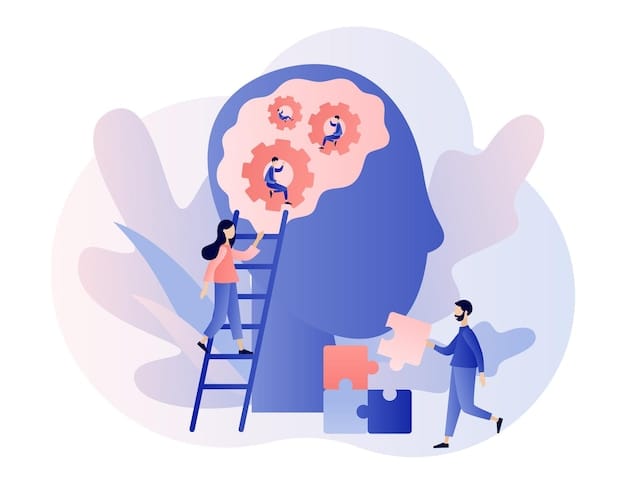
Several organizations together with websites provide dedicated curricula and teaching programs that introduce children to computer science and AI concepts:
CodeYoung – CodeYoung provides young children with both artificial intelligence and coding education.
Coursera – Children can learn about AI through the Coursera platform which universities provide specific lectures on this subject.
Khan Academy – Free interactive lessons on coding and computer science.
MIT App Inventor – Children can build their own mobile AI app using MIT App Inventor.
What is the best way for beginners to start learning computer science with AI tools?
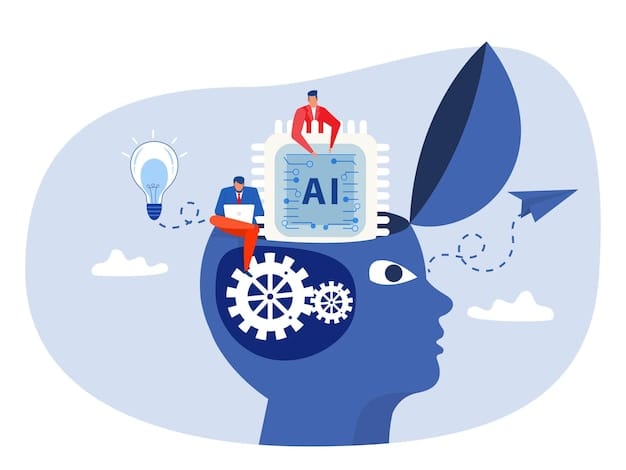
The support of parents for AI learning systems includes allowing students to access AI programming platforms while helping them with computer science beginner courses such as Coding for Kids. AI programming platforms should be provided to students while also enrolling them in Code.org, Machine Learning for Kids, and Scratch coding courses for kids.
Comments
Your comment has been submitted